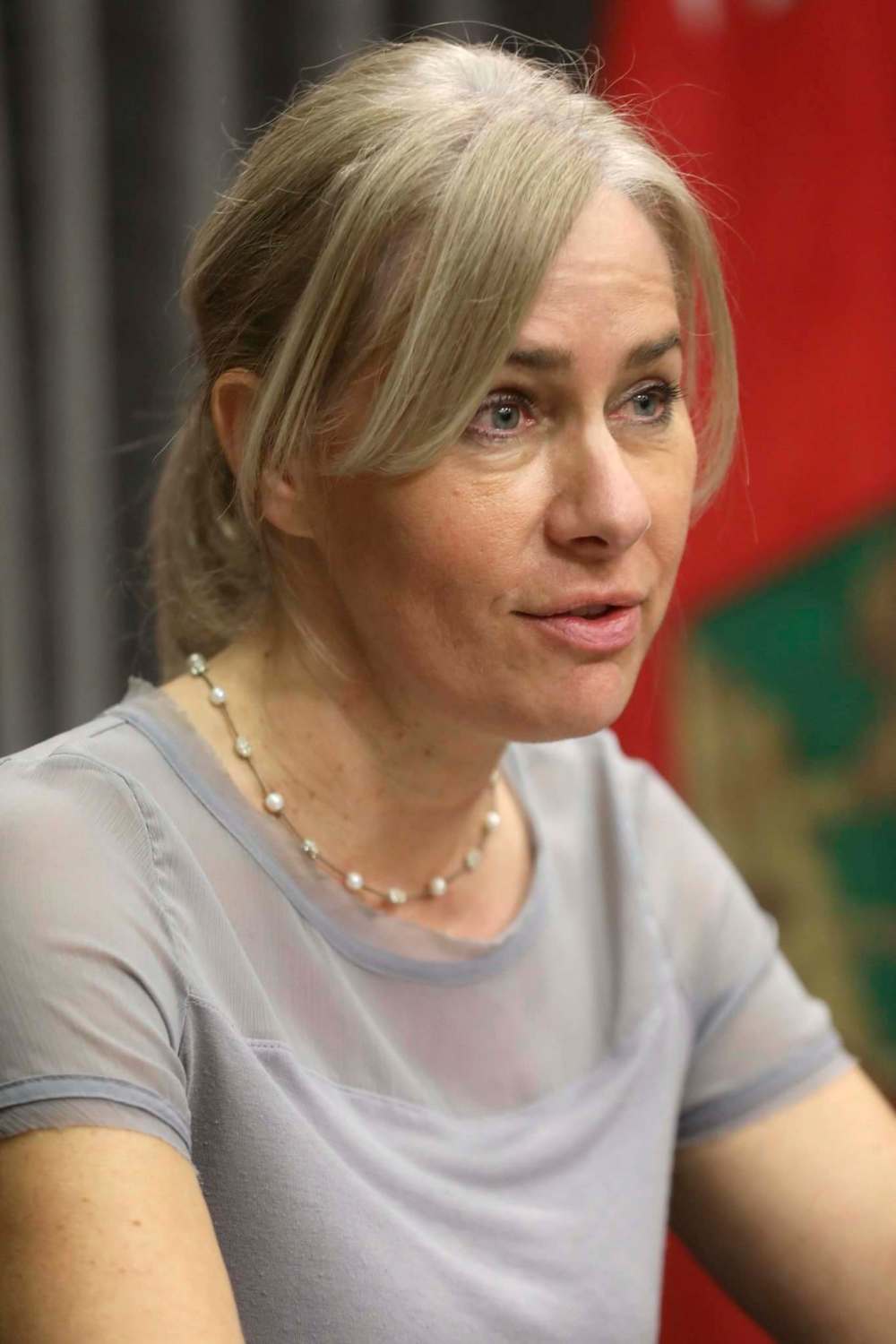Resources, staffing adjusted; sacrifices made
Chief nurse testifies in court challenge
Advertisement
Read this article for free:
or
Already have an account? Log in here »
To continue reading, please subscribe:
Monthly Digital Subscription
$0 for the first 4 weeks*
- Enjoy unlimited reading on winnipegfreepress.com
- Read the E-Edition, our digital replica newspaper
- Access News Break, our award-winning app
- Play interactive puzzles
*No charge for 4 weeks then price increases to the regular rate of $19.00 plus GST every four weeks. Offer available to new and qualified returning subscribers only. Cancel any time.
Monthly Digital Subscription
$4.75/week*
- Enjoy unlimited reading on winnipegfreepress.com
- Read the E-Edition, our digital replica newspaper
- Access News Break, our award-winning app
- Play interactive puzzles
*Billed as $19 plus GST every four weeks. Cancel any time.
To continue reading, please subscribe:
Add Free Press access to your Brandon Sun subscription for only an additional
$1 for the first 4 weeks*
*Your next subscription payment will increase by $1.00 and you will be charged $16.99 plus GST for four weeks. After four weeks, your payment will increase to $23.99 plus GST every four weeks.
Read unlimited articles for free today:
or
Already have an account? Log in here »
Hey there, time traveller!
This article was published 06/05/2021 (1680 days ago), so information in it may no longer be current.
A court fight over the province’s right to impose pandemic restrictions focused its attention Wednesday on health care and the resources marshalled to care for COVID-19 patients.
Manitoba hospitals have been shuffling resources, buying equipment and reassigning staff since February 2020 to increase intensive care unit capacity and meet the demand of expected COVID-19 patients, chief nursing officer Lanette Siragusa testified Wednesday.
“I would say with a lot of challenge, yes, and possibly repercussions that we have not yet seen, but yes, we were able to accommodate the people who came in,” she said.

“We also, though, made sacrifices to the people with elective procedures, some people who didn’t come to the hospital who maybe should have,” Siragusa told the court.
“There’s a trade-off, but we dealt with the COVID cases the best we could. Some say it wasn’t as good, it wasn’t a gold standards, but it was the best they could do in the circumstances.”
Siragusa was testifying in a challenge brought by seven Manitoba churches and three individuals who have taken the province to court over pandemic restrictions limiting their rights to assembly and worship together.
The group is being represented by the Justice Centre for Constitutional Freedoms, a Calgary-based advocacy group which has launched similar court challenges in B.C. and Alberta.
Wednesday marked the third day of the hearing in Winnipeg.
Justice Centre lawyer Jared Brown showed Siragusa a court document detailing increases in a number of non-COVID-19-related medical complaints since the pandemic began, including a 200 per cent increase in opioid-related hospital admissions, a 167 per cent increase in sexually transmitted infections and blood-borne infections, and a 109 per cent increase in intentional injuries.
Brown suggested the fact the system did not buckle under such “eye-popping” numbers showed it can accommodate the additional COVID-19 load.
Brown quoted Siragusa as saying at a November 2020 news conference the province had 173 ICU beds available, while in an affidavit provided to court said there were a total of only 129 ICU patients occupying beds Dec. 10-11.
“While our intensive care numbers exceeded our capacity, it was addressed through additional resources,” Siragusa said in her affidavit.
“And other areas of capacity we had to expand into and services had to be decreased to accommodate that,” she added Wednesday.
Siragusa said the strain on staff and resources has been enormous — and just because hospitals have beds, doesn’t mean there is the staff available to treat the patients in them.
“We had a plan, but with COVID and the outbreaks, we had hundreds of staff that were off sick. So what we put on paper was a plan, it was not necessarily actionable when staff were getting sick or having to isolate,” she said.
“I would say at 129 (ICU beds), the staff, the physicians felt exhausted physically, mentally and spiritually. So the fact that we could identify 173 spaces in ICU and we had equipment and supplies does not necessarily mean we had the people power to place patients in those beds,” Siragusa said.
“Had we needed more, we would have looked at all options available to us, but it was pretty tough at that time in mid-December.”
Manitoba hospitals cancelled elective surgeries and other procedures in the spring and fall of 2020, leading to a backlog of 16,000 cases.
“Sometimes, it was also a matter of we didn’t have the surgery staff available, so surgeries had to be cancelled because of that, not because we weren’t deploying resources, but because we didn’t have the resources available,” she said.
The cancellation of surgeries was not dictated by public health orders, Siragusa said.
“Those (decisions) were made by the health system, by medical-clinical experts based on what was happening in the hospitals… It wasn’t a public health decision, it was a clinical decision.”
“So you have those particular surgeries out of the system to create capacity both in the spring and the fall of 2020,” Brown said.
“Yes, if they were selected by the surgeons in terms of what specific surgeries could be delayed safely,” Siragusa replied.
dean.pritchard@freepress.mb.ca

Someone once said a journalist is just a reporter in a good suit. Dean Pritchard doesn’t own a good suit. But he knows a good lawsuit.
Our newsroom depends on a growing audience of readers to power our journalism. If you are not a paid reader, please consider becoming a subscriber.
Our newsroom depends on its audience of readers to power our journalism. Thank you for your support.
History
Updated on Thursday, May 6, 2021 6:07 AM CDT: Adds photo
Updated on Thursday, May 6, 2021 6:18 AM CDT: Changes photo



